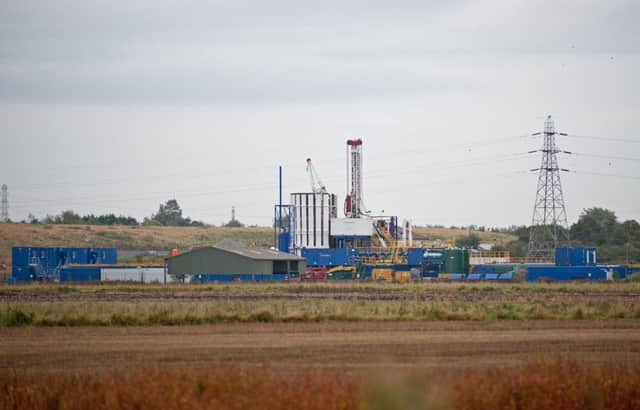Gas chemicals ‘a threat’ to farm produce


Professor Robert Oswald, of Cornell University, New York, said a halt should be called on the industry after a number of alarming incidents in America.
Professor Oswald said: “(British) farmers living in intensively drilled areas should be very concerned about potential exposures of their crops and herds to shale-gas contaminants in the water, air and soil. Farmers have a right to know what their families and their herds are being exposed to.”
Advertisement
Hide AdAdvertisement
Hide AdThe shale gas process involves firing a mixture of water and chemicals underground at high speed to frack, or fracture, shale rock.
It is these chemicals Professor Oswald has raised concerns about, after a study revealed 24 incidents across six states in America showed links between fracturing and sickness in farm animals.
In one report, 17 cows are alleged to have died after drinking contaminated water in Louisiana, while in Pennsylvania, a herd suffered a 50 per cent stillbirth rate after cows grazed in a field contaminated with chemicals from a nearby waste pit.
Gayzer Frackman, of Frack Free Fylde, said it was clear more investigation is needed on the process: “This is where the moratorium comes in – we have to investigate every area before we go ahead with this.
Advertisement
Hide AdAdvertisement
Hide Ad“We are now talking about livestock, animals in the food chain. It is another thing that will affect our health. The bottom line is this a health issue, it isn’t a small risk, it is a big one.”
Tina Rothery, of Residents Action of Fylde Fracking added: “Our deepest concerns are not just for the farming industry, but primarily for the people who live in these areas.”
Gas company Cuadrilla owns three shale gas sites across Fylde, including Singleton, Weeton and Westby.
A spokesman for the company said: “We are confident that we can extract natural gas from shale rock without any adverse effect on local agriculture. Many of the claims made in the report would simply not apply here in the UK, where we have a much more rigorous regulatory structure that already addresses most of the concerns raised.
Advertisement
Hide AdAdvertisement
Hide Ad“Cuadrilla is committed to unlocking Lancashire’s shale gas potential in a responsible manner while adhering to very high safety standards. Earlier this year, we appointed leading engineering and planning consultants Arup to conduct Environmental Impact Assessments (EIA) for any site that the company intends to apply for permission to hydraulically fracture. The EIA will consider a wide range of environmental topics, including the potential effects of the proposed exploration activities on habitats and wildlife.”